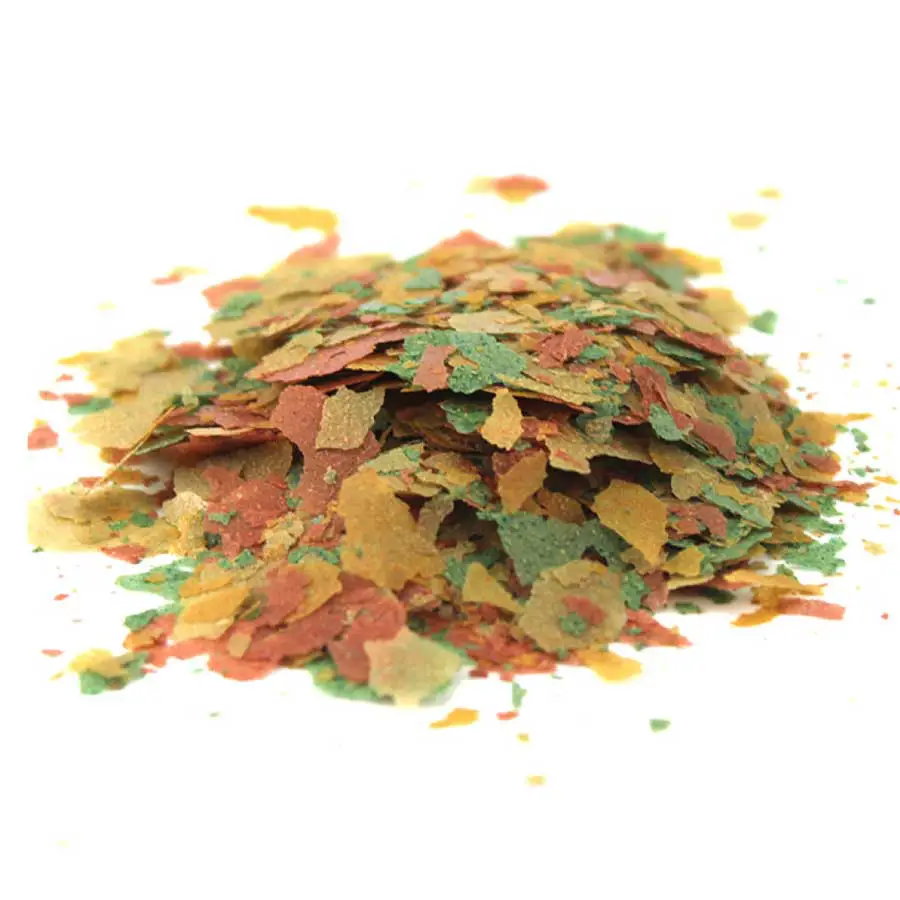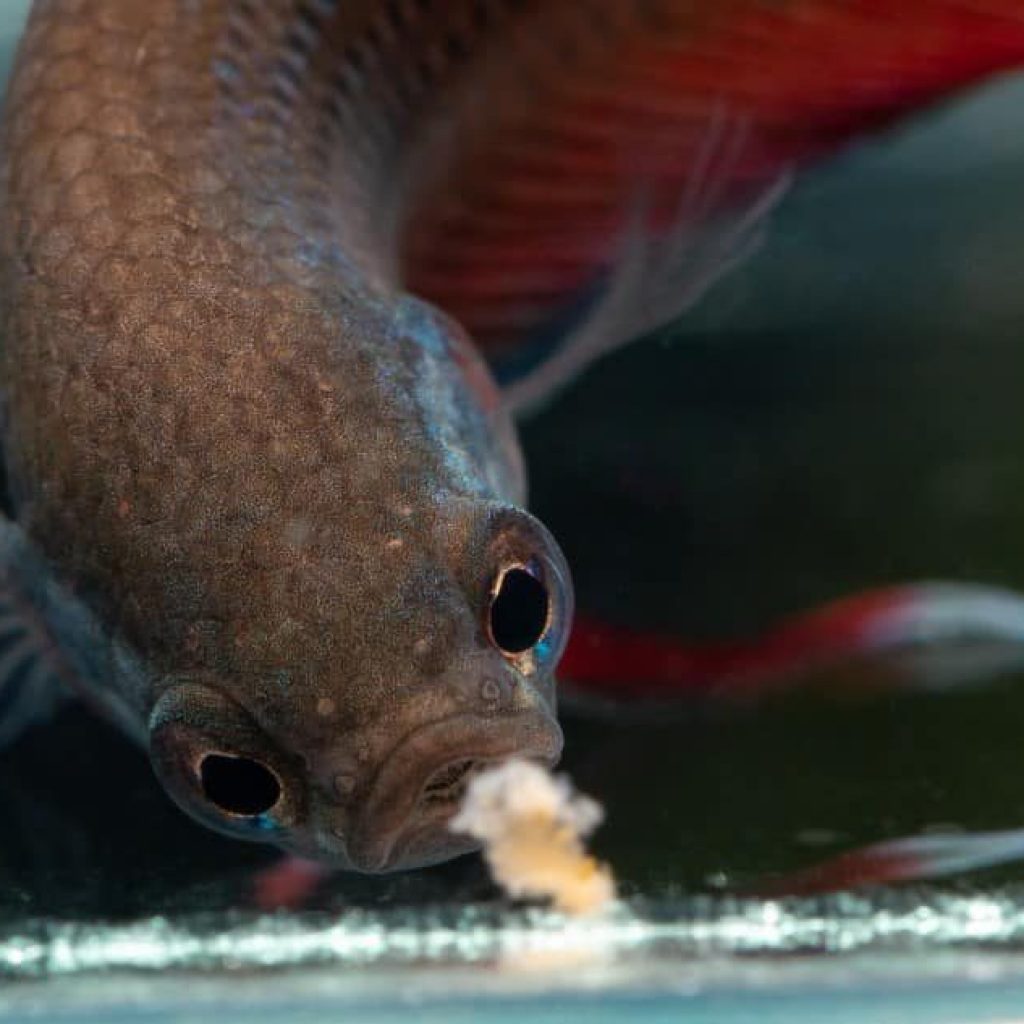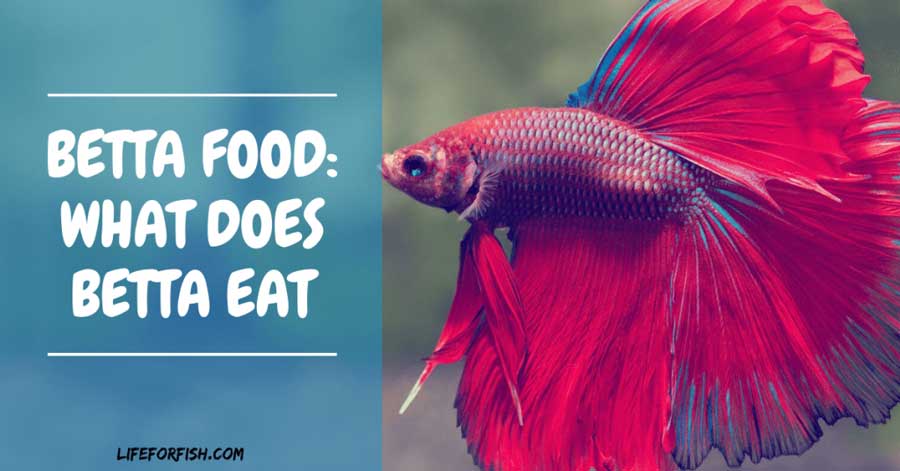If you have been petting a Betta fish for quite some while now, you should be familiar with the truth that there is a string of innumerable discrepancies that circumscribe the subject.
Some owners are of the opinion that store-bought food such as pellets and flakes work the best while others resort to frozen food and even human food.
In this article, we will attempt to eliminate your doubts all at once and jot down a complete guide that will help you gain an unblemished insight into the foods that Bettas can and cannot eat.
See Also
Betta diet
Honestly, there are innumerable varieties of food that you can feed your Betta fish including flakes, pellets, frozen dried foods, frozen foods, and live foods.
- Flakes
Generally speaking, flakes are the most common Betta food that is available in the market and you can easily get your hands on one of its pack from the local pet store.
Flakes are rich in nutrients, cost-effective and most importantly, stay afloat on the surface of the water for long. The chief objective of the flakes is to nourish your fish with the indispensable nutrients as an alternative to diverse freshly prepared and home foods.

However, because flakes are not exclusively designed to suit a particular fish, their nourishment is not always at par with the optimal level suitable for your little buddy.
This is the reason why flakes should be introduced in the Betta’s diet as a supplementary and not the primary source of sustenance.
This implies that flakes should be offered to your fish in moderation and swapped with other supplementary from time to time.
- Pellets
More than flakes, pellets are an efficacious source of food for Bettas and resultantly, can be capitalized on as a daily source of food.
As opposed to their contemporaries delineated in the preceding segment, pellets are of higher quality and come in interesting shapes and colors to attract the fishes to have them in one go.
There are a lot of brands that sell their products in cans with lids and labels that contain detailed instructions about how your fish must be fed.
- Frozen dried foods
Frozen dried foods are simply the mirror image of live foods but, in the former case, all the victuals are ridden of their moisture and stored in freezing temperatures.
Even though we cannot steer away from accepting the fact that the frozen dried foods are not as nutritious as live or cooked food, they are still a better choice than flakes and pellets in terms of nourishment.
- Live foods
If you are looking for something that will copiously comply with the dietary needs of your Betta fish then, live foods are inexorably the best resort.
Besides being cultured in natural environments, live foods are known for their capability to increase the longevity of the fish constricted in an aquarium.
Nevertheless, live foods cost a little more than the selections outlined here and will call for some generous effort to find them in the pet stores.
Let us also admit that the rate of the live foods is largely influenced by their kind; for instance, worms will tend to be on the cheaper side of the spectrum while shrimps, just the opposite.
- Frozen food
Although there is a series of similarities between live food and frozen food, some people are more inclined towards the latter variant and justifiably so.
Frozen foods are less messy and easier to store; furthermore, they can stretch the lifespan of the Betta by months and cut down the risks of contamination.
But, the only glitch that can bother you is that frozen foods rank lower than live foods in the scale of nutrition but, on the other hand, is cheaper and readily available.
How much food does a Betta eat?

For those of you who might not know, Betta fishes are incapable of controlling their own appetite and consequently, on most days they are left with empty stomachs in the wild but, are constantly on the lookout for prey.
If you are trying to understand the ideal amount of food that a Betta eats in a day, there is an extremely easy way to find that out.
When you are feeding the fish, try to notice their pattern in the first two minutes; if you see the Betta eating steadily, let it take at least five minutes with it.
Additionally, the quantity of the food is also manipulated by the size of each granule of the pellet or flake you have chosen for your fish.
Another way of arriving at the conclusion is by confirming that the volume of the portion is equal to around 5% of the total size of the Betta’s body.
If your fish neglects the food, the granules will start settling at the bottom and as a repercussion, dissolve and degrade the quality of the water in the tank.
Also, after a point, the nibbles will commence generating toxicity and make way for distinct health complications in the Betta fish.
How often should you feed the Betta?
From the looks of it, one will be able to tell that the Betta fish doesn’t require a constant supply of energy and thus, feeding them about two times in a day will be sufficient.
Make it a routine to feed your fish once in the morning and once at night every day; meaning, there should be 12 hours gap between the meals.
Nonetheless, bear in mind that no matter what you do, never amalgamate different variables of food in a single serving.
This is because, the size of the fish doesn’t permit their digestive system to adapt to the diversities and thereby, opens doors to severe health problems. It is always a wise choice to give those little creatures a break (a day every week or two) and allow their gastric system to eradicate the toxins and replenish it for better.
If you have plans to go away for a week, do not pour extra food in the aquarium because that can either encourage overeating in the Betta or no eating at all.
For how long can Betta survive without food?
Like we have already mentioned in the above segment, if you have a trip scheduled in the coming days, then do not worry because your Betta can survive without food for a fair number of days.
Granting the numeral will inescapably vary, on average, the fish can live up to 14 days without food.
But, we would recommend you not to leave the fish on its own fate and ask a friend or neighbor to take care of it and feed it from time to time while you are away.
Even so, if there’s no chance for you to have an arrangement like this, procure an automatic feeder and set it on a timer to nurture the little guy inside the tank.
Can you feed vegetables to Betta?
Most likely, a Betta fish will switch to vegetables in the wild only when they do not have anything else to eat; but, there are indeed exceptions.
According to studies, there are certain species of Betta that enjoy an herbivorous meal and there is no doubt about that.
Now, coming to the question of whether or not you can familiarize your fish vegetables, we will have to say yes.
As per our understanding, a great way of developing this habit in the Betta can be by introducing peas in their diet. Peas can prove advantageous in curbing the bloating during constipation as its fiber cleanses the digestive system and relieves them of the painful system.
You should always let your fish have boiled peas which, in turn, must be cut in minuscule bits to make it easy for the organism to thoroughly absorb and digest the food.
In the next step, you can move on to feeding your fish leafy veggies like spinach, lettuce, and cucumber.
Take into account the verity that the impermeability of the Betta fish towards these vegetables will depend on the tiny creature’s appetite and taste buds because, let’s face it, the fish is very picky as far as its diet is concerned.
Sometimes you can have two or three Betta in a single tub but, it will not be completely unnatural for them to have different preferences.
For solid vegetables, you should ensure that every bit of them are thoroughly boiled and for their leafy counterparts, wash well and heat them in the microwave for 3-5 minutes to break down the cellulose of the leaf.
Peas can be replaced with sweet corn but, their outer coat should be peeled off and mashed into petite crumbs. Taters like carrot, beans and the like should be entirely kept off the list because they are too fibrous for the Betta fish and would hence, raise difficulties in chewing and swallowing them.
Likewise, bitter-flavored vegetables such as carrots, sprouts, broccoli, onion, leek, and shallots should be avoided.
Frequently Asked Questions (FAQ)
What does baby Betta eat?
There are essentially three kinds of food that baby betta fishes can eat and they are namely, infusoria, brine shrimp and the larger foods.
Preferably stick to this chronology to make sure that the digestive system of the infant is developing in the right direction. Infusoria is fundamentally a liquid fried food that should be offered to Bettas that have newly hatched.
You can use a dropper to collect the food from its container and then directly squash it into the tank above the little one.
After a few days, shift to brine shrimp nauplii as they are excellent sources of protein and incredibly easy to ingest. The shrimp should be fed to the fish in a similar fashion through the eyedropper so that you are assured that the baby is not overfed.
Once the Betta fish steps over the four weeks mark, it can get going with the larger foods that we have pointed out in the earlier fragments.
Does Betta eat bloodworms?
As because Bettas are classified under the category of carnivores, bloodworms are not something that the fish would shy away from consuming.
Rather, if you take our suggestion, bloodworms will turn out to be excellent sources of protein and omega-1 acids.
Moreover, aquarists propose that a Betta’s diet should contain a substantial chunk of protein and above all, should be meaty.
Both frozen and live bloodworms will work well for the fish and can be employed as a remarkable palette cleanser after subjecting them for days to the same food.
Does Betta eat their babies?
Unfortunately, the answer would be yea; Bettas can sometimes eat their babies but, there are several factors that mold this rejoinder and they constitute to make up a whole new dimension that is still waiting to be explored.
In the wild, the Betta males aggressively protect their offspring for the first few weeks of their lives, therefore, safeguarding them from every impending danger; but, with the passage of time, they can devour their children too.
When held captive, the fishes are swayed more towards eating their eggs and babies but, this trend can be mended if the owner wants.
All in all, Bettas make great parents and their domesticated versions when conditioned properly can do away with the instinct of feeding on their progenies.
Can Betta eat goldfish flakes?
Yes, Betta fish can eat goldfish food but, not as its principal diet; letting it have the goldfish flakes once in a while is fine but, not for a continued term.
Goldfish flakes are commonly fashioned from vegetables and grains indicating at less protein content in the mix and Betta needs just the reverse of it.
Always check the list of ingredients on the packaging; if there’s no animal flesh included in it, it will be an astute choice to give up the plan and go for something else.
The elucidation for this would be when the diet of Betta falls short of protein, it cannot be qualified as a “balanced” one and can buoy up problems like constipation, bloating, swim-bladder disease or at times even death.
